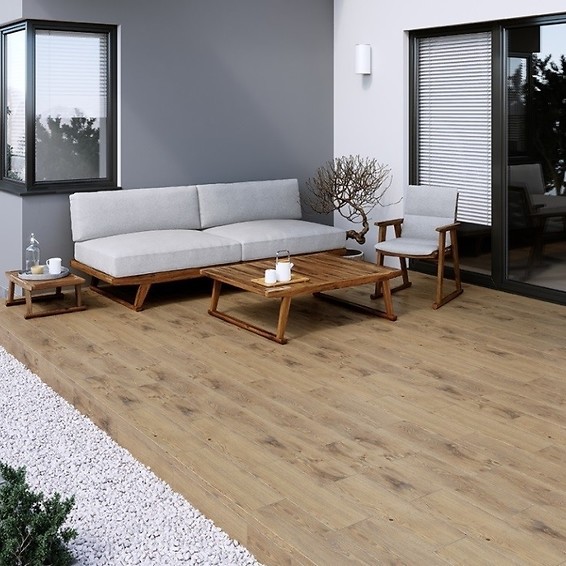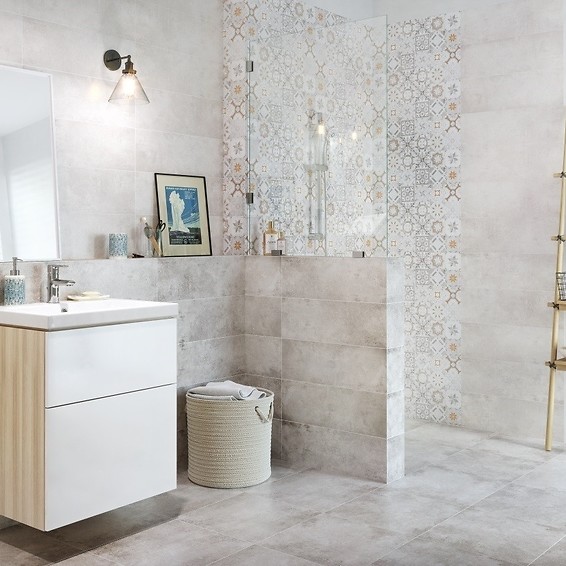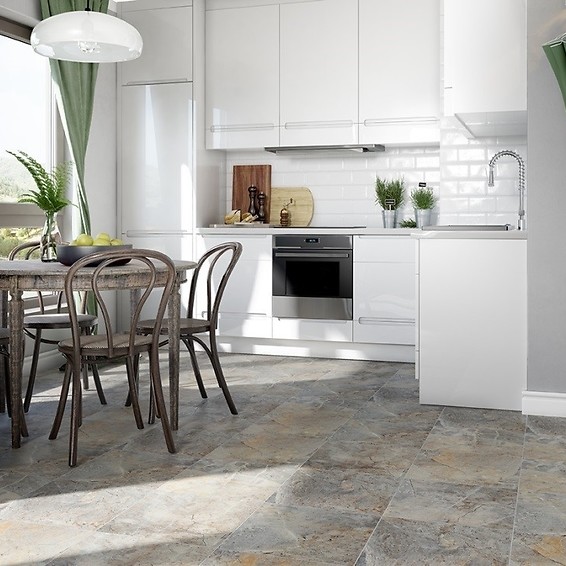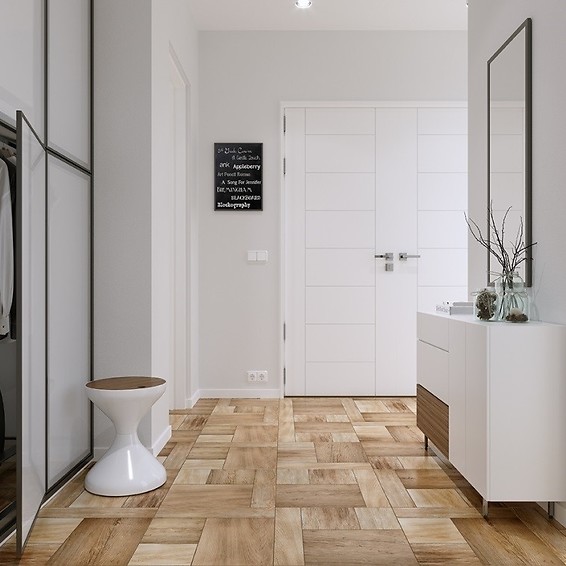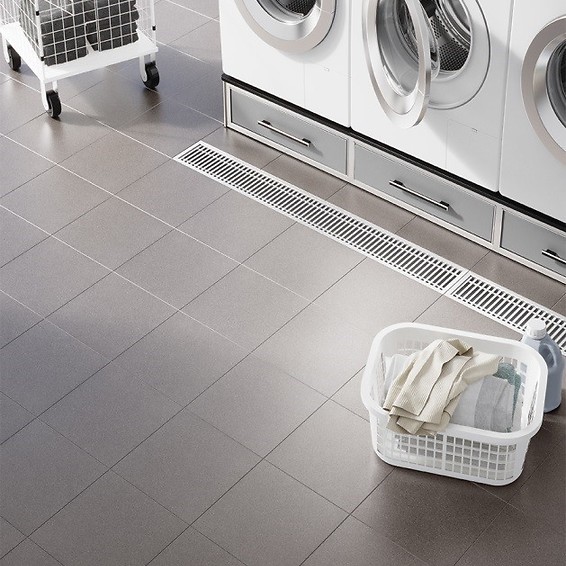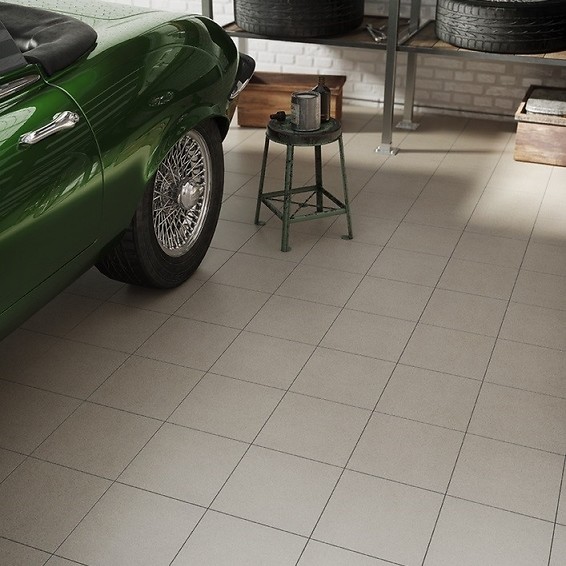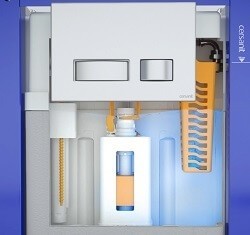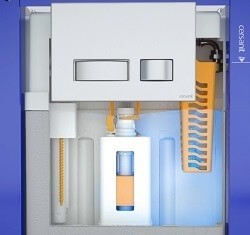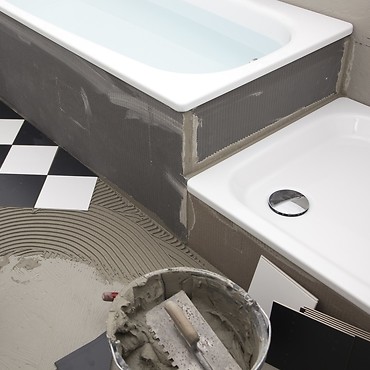Choice of tiles ceramics
The right choice of ceramic tiles
Ceramic tiles are chosen according to personal aesthetic preferences, often guided by the prevailing fashion. However, always remember that their pattern and colours should match the shape and size of the room, its purpose, furniture and lighting.
When choosing tiles for a particular room, you should make a choice based on the function they should fulfill.
After determining what tiles you want to use, you need to calculate the necessary quantity. The starting point is to calculate what surface area (in m2) is to be covered with tiles.
In addition, the following factors should be taken into account:
- the method of laying (jointless, with joints), width and method of joint laying, the losses that may occur when drilling holes or trimming tiles,
- leaving a certain number of spare tiles in case of repairs, because tiles purchased later and coming from a different lot may differ in shade.
EXPERIENCE DICTATES THAT ON AVERAGE YOU SHOULD PURCHASE ABOUT 10% MORE TILES THAN THE QUANTITY CALCULATED ON THE BASIS OF THE SURFACE AREA.
Kitchen
In places exposed to frequent staining, the use of tiles and decorations with ornaments that are not resistant to scrubbing (e.g. gold ornaments) should be avoided. In kitchen areas with high traffic, e.g. in the cooking or washing up zone, it is worth choosing tiles with a higher PEI 3 abrasion class.
Entrance hall, corridor
The hall and corridor are places with the heaviest traffic, which are entered into in footwear, often soiled with dirt from the outside. It is therefore necessary to choose tiles with even higher abrasion resistance class, at least PEI 4. In the curse of use, the surface of glazed tiles is abraded, which is more visible on glossy surfaces than matt surfaces (scratches may appear and in places where they are subjected to heavier load the tiles may lose their gloss over time).
Bedroom, living room
The floor in the bedroom and living room is less exposed to mechanical loads, abrasion, chemicals, dirt or objects falling down than the kitchen floor. Gres tiles, both glazed and unglazed, are used here, of class PEI 3 and higher. The diversity of formats, shapes, decorative elements and a wide range of colours provide great architectural possibilities. Polished gres (porcelain stoneware) is very popular due to its the elegant and refined appearance. Its surface, however, is less resistant to scratches and when used in more frequented places, the surface may become matt and the original appearance may change significantly.
Terraces and facades
For outdoor applications, frost proof tiles should be selected. The terrace, often connected with the space around the house, is additionally exposed to abrasive elements in the form of sand and gravel brought onto it. We recommend tiles with the highest technical parameters – glazed porcellanato gres tiles with min. PEI 3 and anti–slip properties. The unglazed gres also works perfectly on the terrace.
Public buildings - hotels, offices, hospitals, schools
In public buildings, tiles are exposed to high mechanical and chemical load. The tiles of the highest abrasion classes, characterized by high resistance to chemical agents and staining, should be used there. Glazed and unglazed gres tiles are recommended for the rooms in this type of buildings, their abrasion class should be at least PEI 4 . In order to extend the life span of the tiles and the long–term satisfaction with their use, it is recommended to use doormats and frequently clean the floor surface. Glossy and polished glazed tiles are not recommended.
Productions halls, warehouses
The floors of these objects are usually subjected to heavy loads, and they also often require increased chemical resistance. Safety is very important here due to the frequent presence of liquids, lubricants etc. In facilities where food, pharmaceuticals or cosmetics are manufactured, special requirements for cleanliness and hygiene must be met. Ceramic tiles should properly cover both floors and walls. Gres with larger thickness, e.g. 12 mm, work very well on the floors of industrial facilities.
See more tips in this category
-
FRESH SYSTEM - a guarantee of freshness
The WC concealed systems with the FRESH SYSTEM feature a dedicated container for toilet fresheners. The ... -
QUICK FIX - universal mounting brackets
The new AQUA WC concealed systems are equipped with very handy QUICK FIX wall brackets for easy ... -
Bathtub installation — the most common mistakes and how to ...
The bathtub is usually the central point of the bathroom. The place that is associated not only with ...

